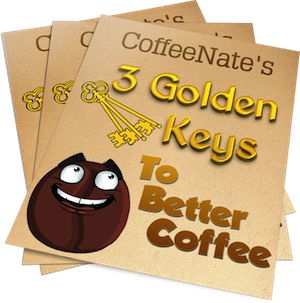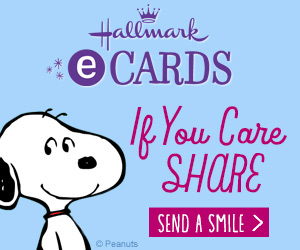Disclosure: I may receive compensation when readers purchase products after clicking links on this site. This does not affect my opinion or the price you pay, but does help support my work. Reviewed products may have been provided at no cost.
Have a coffee question? Have it answered on the show, and win FREE coffee!
ASK COFFEENATE
Maybe you’ve seen them, maybe you haven’t…the tree frog, the half black / half white dude with baskets in his/her hand, or perhaps a flock of Smithsonian birds on your coffee labels? What the heck do these coffee certification labels mean to us, the consumer? Watch the vid and keep reading to find out!
To be certified ‘organic’ a product must be cultivated without the use of chemical pesticides, fertilizers, synthetic materials, and also must be not be genetically engineered.
As a side note, the vast majority of coffee farmers are not very educated. This leads to the misuse of chemical pesticides and fertilizers. Many farmers unknowingly pollute their community drinking water, killing the natural flora and fauna, while poisoning themselves. In addition, most do not wear the required protective clothing either. When you buy organic, you are supporting methods that promote better living conditions for the farmers, their communities, as well as the surrounding wildlife.
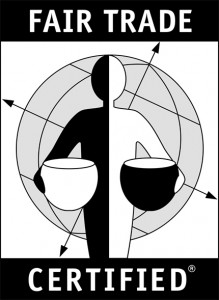
Fair Trade Certified
Fair Trade Certification ensures that the producers of the coffee receive a fair price for their coffee. This program works with farmers to help them develop themselves as businessmen, inspiring them to work together with other farmers to not only provide for their families, but to make investments in their communities. When a producer becomes Fair Trade Certified they are educated in sustainable growing techniques such as organic farming methods, and shade growing coffee. Farmers that are certified are guaranteed a premium price for their coffee, and also receive additional premiums if they switch to sustainable growing methods.
Rainforest Alliance certification is directed towards preservation of natural eco-systems and helping coffee farms to produce their crops with very little or no impact on the natural surrounding habitat through reduction of waste, water usage, and improved efficiency. They also work to improve the quality of life for the employees of the farm, ensuring fair wages, decent living areas, and access to school, health care, and clean drinking water.
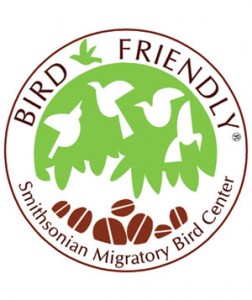
Smithsonian Bird Friendly
This certification, as you’ve probably already guessed, is focused on preserving the habitat of the indigenous bird populations of the tropical areas where coffee grows. Much of the natural trees have been clear-cut, or nearly clear-cut, to provide more acreage for planting coffee trees. This has also caused a greater need for pesticides to ward off the bugs that were not an issue with natural canopy shade growing methods.
In addition to the focus on shade growing techniques there is also the added benefit that all ‘Bird Friendly’ coffee is also certified organic. There is also a bit of the Fair Trade aspect of a premium price for producers.
My overall favorite site to purchase sustainable coffee is Green Mountain Coffee Roasters. They are easy to deal with and offer a huge variety of coffees to try. I like how they have details about where the coffee came from, right down to the farmer! They have a great coffee buying club that gets you a discount of $1 per bag and you don’t have to order a minimum amount, nor do you have to order at any frequency. Pay them a visit!
While none of the above programs are perfect, nor can they solve all of the injustices going on in the coffee growing regions of the world, but it is a start. It helps us as consumers to educate ourselves on what is going on, and what we can do to at least contribute in a small way. Check out the .pdf chart to the left, it was published by SCAA.org, and it is a great side by side comparison of various sustainable coffee certifications. It also has contact info for each group as well. Please feel free to contact me with any additional questions you may have on this topic. Just leave a comment below, or if you are shy you can click ‘contact’ at the top of the page 🙂
Entering our FREE coffee contest is easy! This month it is being sponsored by Kohana Slow Roasted Coffee. Check out their site, and also follow them on Twitter @KohanaCoffee Kohana offers great slow roasted coffees that are prepared in small batches to ensure quality and freshness!
Here’s how you can enter today!
- Leave a comment on any CoffeeNate.com post (1 entry per contributing comment)
- Become a fan of CoffeeNate.com on facebook or click “Become a Fan” in the toolbar at the bottom of the page.
- Click the “Tweet” button at the top left or bottom of any CoffeeNate.com post
- Follow me and ReTweet my tweets that contain contest info
- Sign up for our email updates at the top right of any page
At the end of February, I will draw a winner and they will be able to choose any coffee from Kohana Coffee’s website (does not include ultra premium %100 Kona coffee). Kohana will ship directly to you at absolutely no charge! Enjoy 🙂 The contest is open to all North American residents, and Kohana ships to everywhere in North America!
If you enjoy what you see at CoffeeNate.com then please pay me back by visiting my sponsors! Every time a visitor from my site goes to a sponsor’s site, they know where the click came from. Show my sponsors that you appreciate their contribution to this site! Thank you and good luck!! 😀
- How To Make Coffee With The AeroPress :: Inverted AeroPress Video Tutorial - February 2, 2022
- How To Clean a Chemex : #CoffeeTip - January 14, 2022
- Origin Trip to Colombia! #MindTheBean - June 3, 2021
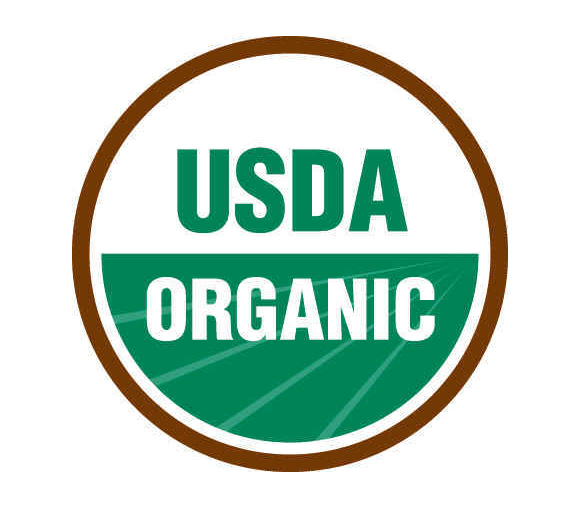
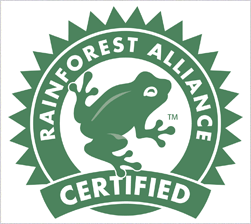
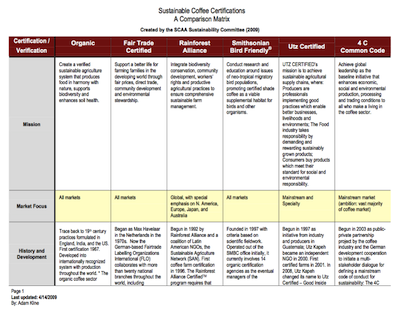
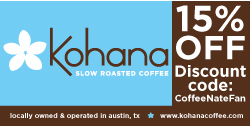 USE CODE: CoffeeNateFan
USE CODE: CoffeeNateFan